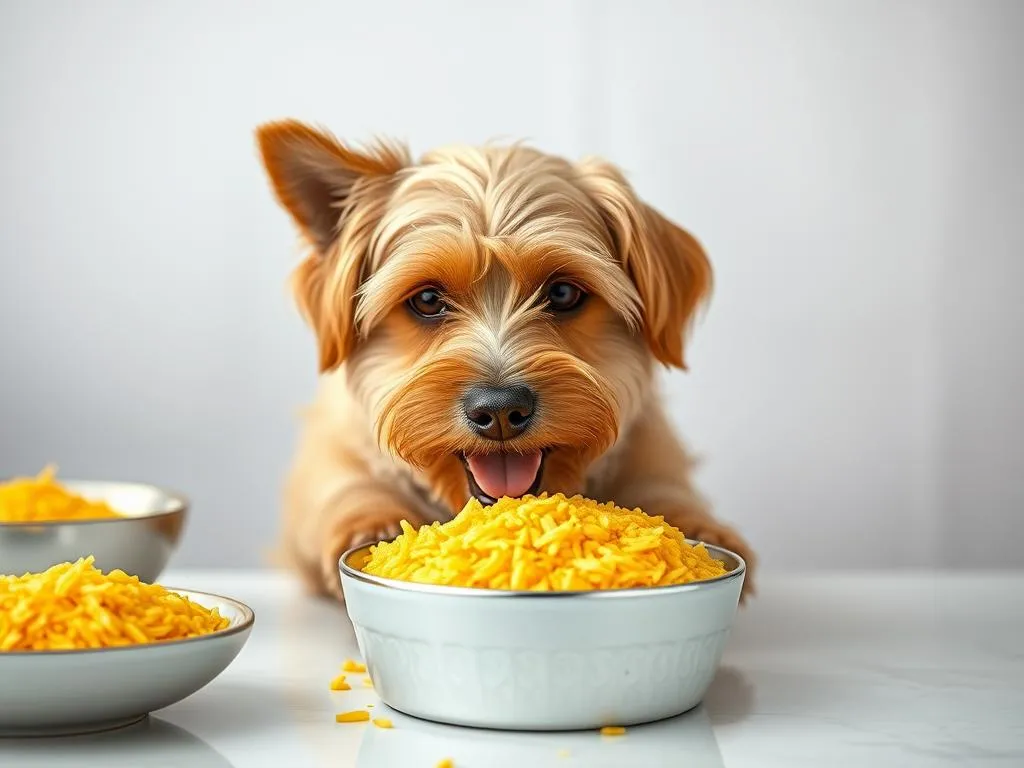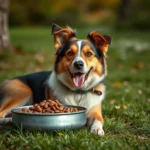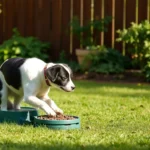
Introduction
Proper nutrition is essential for maintaining a dog’s overall health and wellbeing. Just like humans, dogs require a balanced diet that provides them with the necessary nutrients to thrive. This includes proteins, fats, carbohydrates, vitamins, and minerals. As pet owners, we often find ourselves wondering which human foods are safe and beneficial for our furry friends. One food item that frequently comes up in discussions is saffron rice, a popular dish known for its vibrant color and rich flavor. In this article, we will explore can dogs eat saffron rice, discussing its safety, nutritional value, and how it can fit into your dog’s diet.
Understanding Dog Nutrition
Basic Nutritional Needs of Dogs
Dogs are omnivores, meaning they can consume a variety of foods, including meats and plants. Their basic nutritional needs can be broken down into three primary macronutrients:
- Proteins: Essential for muscle development, repair, and overall bodily functions.
- Fats: Provide energy and support healthy skin and coat.
- Carbohydrates: Serve as a source of energy and aid in digestion.
In addition to these macronutrients, dogs require a variety of vitamins and minerals, such as vitamins A, D, E, B-complex, calcium, phosphorus, and potassium. These nutrients play critical roles in maintaining health and preventing disease.
Common Human Foods Safe for Dogs
Many human foods are safe and even beneficial for dogs when given in moderation. Some dog-friendly foods include:
- Carrots: Low in calories and high in fiber.
- Pumpkin: Great for digestion and rich in vitamins.
- Chicken: A lean protein source that many dogs love.
- Peanut Butter: A tasty treat that is high in protein and healthy fats.
However, preparation methods matter. Always ensure that these foods are cooked without added spices, salt, or sauces.
Foods to Avoid for Dogs
While there are many human foods safe for dogs, there are also several toxic foods to be aware of. Common foods that are harmful to dogs include:
- Chocolate: Can cause serious health issues due to theobromine.
- Grapes and raisins: Known to lead to kidney failure in dogs.
- Onions and garlic: Can damage red blood cells and cause anemia.
Understanding why certain human foods can harm dogs is essential for keeping your pet safe and healthy.
Saffron Rice: Nutritional Profile
What is Saffron Rice?
Saffron rice is a delightful dish made by cooking rice with saffron, a spice derived from the flower of Crocus sativus. Known for its vibrant yellow color and unique flavor, saffron is often used in various cuisines around the world, especially in dishes like paella and biryani. Beyond its culinary appeal, saffron has been praised for its potential health benefits in humans, including anti-inflammatory properties and antioxidant effects.
Nutritional Content of Saffron Rice
Saffron rice is primarily composed of carbohydrates from the rice, along with small amounts of protein and fats. Its nutritional content varies depending on the preparation method and any additional ingredients used. Here’s a basic breakdown of the nutrients typically found in saffron rice:
- Carbohydrates: Primary source of energy.
- Proteins: Essential for muscle health.
- Vitamins: Contains small amounts of B vitamins, which help with energy metabolism.
- Minerals: Offers trace minerals like magnesium and potassium.
While saffron itself is used in small quantities, it contains antioxidants and may even have mood-enhancing properties for humans. However, the question remains: is saffron rice safe for dogs?
Can Dogs Eat Saffron Rice?
Safety of Saffron Rice for Dogs
When considering can dogs eat saffron rice, it is important to analyze the components involved. The rice itself is generally safe for dogs. However, saffron should be considered with caution. While small amounts of saffron may not harm dogs, excessive consumption can lead to potential side effects, such as:
- Vomiting
- Diarrhea
- Increased heart rate
Overall, while saffron rice can be safe for dogs in moderation, it’s essential to be mindful of the amount of saffron included.
Benefits of Feeding Saffron Rice to Dogs
Feeding your dog saffron rice can provide several benefits, particularly if you are looking to diversify their diet. Some potential health benefits include:
- Digestive Aid: Rice is often recommended for dogs with digestive issues.
- Anti-inflammatory Properties: Saffron has compounds that may help reduce inflammation.
- Palatability: The unique flavor can entice picky eaters.
Incorporating saffron rice into your dog’s diet can complement their nutritional needs, provided it is done thoughtfully.
Considerations and Precautions
Before introducing saffron rice to your dog’s diet, consider the following:
- Serving Suggestions: Prepare saffron rice without salt, butter, or additional spices.
- Portion Sizes: Start with a small portion to monitor for any adverse reactions. A tablespoon or two mixed with their regular food may be a good starting point.
- Breed Considerations: Consult with your veterinarian, especially if your dog is small or has existing health conditions.
Preparing Saffron Rice for Dogs
Basic Recipe for Dog-Friendly Saffron Rice
Preparing saffron rice for your dog requires a simple approach to ensure it is safe and healthy. Here’s a step-by-step guide:
- Ingredients:
- 1 cup of white or brown rice
- A pinch of saffron threads
- 2 cups of water
-
Optional: Dog-safe vegetables like peas or carrots
-
Instructions:
- Rinse the rice under cold water to remove excess starch.
- In a pot, bring water to a boil and add the rice.
- Add the saffron threads and stir gently.
- Reduce heat and cover, letting it simmer for about 15-20 minutes or until the rice is cooked.
- If desired, add dog-safe vegetables during the last 5 minutes of cooking.
- Let it cool before serving to your dog.
Incorporating Saffron Rice into Your Dog’s Diet
To include saffron rice as a part of your dog’s diet, consider these tips:
- Mix with Regular Food: Combine a small amount of saffron rice with your dog’s usual kibble or wet food.
- Frequency of Serving: Limit saffron rice to occasional treats rather than a daily staple to maintain a balanced diet.
Alternative Healthy Foods for Dogs
Other Rice Variants Safe for Dogs
If saffron rice isn’t suitable or available, there are several other rice variants that are safe for dogs:
- Brown Rice: A whole grain that is high in fiber and beneficial for digestion.
- White Rice: Easily digestible and often recommended for dogs with stomach issues.
- Wild Rice: A low-calorie option packed with antioxidants.
Other Healthy Human Foods for Dogs
In addition to rice, there are numerous other nutritious human foods that dogs can safely enjoy:
- Sweet Potatoes: Rich in vitamins A and C.
- Blueberries: Packed with antioxidants and low in calories.
- Oatmeal: A good source of fiber that can help with digestion.
Conclusion
In summary, addressing the question of can dogs eat saffron rice reveals that while saffron rice can be safe for dogs in moderation, it’s crucial to consider the amount of saffron used and the overall balance of your pet’s diet. Dogs require a variety of nutrients to thrive, and saffron rice can be a delightful addition when prepared correctly. Always consult with your veterinarian before making significant changes to your dog’s diet, ensuring that you provide them with the healthiest options available.
FAQs
Can saffron rice be a regular part of my dog’s diet?
Saffron rice should be an occasional treat, not a regular part of your dog’s diet. It is important to maintain a balanced diet tailored to your dog’s specific nutritional needs.
What should I do if my dog has an adverse reaction to saffron rice?
If your dog shows signs of distress, such as vomiting or diarrhea after eating saffron rice, consult your veterinarian immediately for advice and potential treatment.
Are there any specific breeds that should avoid saffron rice?
While saffron rice is generally safe for most dogs, small breeds or those with particular health issues should be monitored closely. Always consult your veterinarian for personalized dietary advice.









